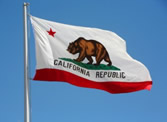404 S Figueroa St
Los Angeles, CA 90071
 In 1977, the California legislature amended its family code, Section 300, to read that marriage is "a personal relation arising out of a civil contract between a man and a woman, to which the consent of the parties capable of making that contract is necessary." But another section of the California code, Section 308, provides that "A marriage contracted outside this state that would be valid by the laws of the jurisdiction in which the marriage was contracted is valid in this state." In March 2000, the voters of California approved Proposition 22, which amended Section 308 with the following language: "Only marriage between a man and a woman is valid or recognized in California." Same-sex marriage proponents contend that Proposition 22 only applies to marriages performed or licensed outside of California, and that the legislature remains free to amend its own law to allow same-sex marriage.
In 1977, the California legislature amended its family code, Section 300, to read that marriage is "a personal relation arising out of a civil contract between a man and a woman, to which the consent of the parties capable of making that contract is necessary." But another section of the California code, Section 308, provides that "A marriage contracted outside this state that would be valid by the laws of the jurisdiction in which the marriage was contracted is valid in this state." In March 2000, the voters of California approved Proposition 22, which amended Section 308 with the following language: "Only marriage between a man and a woman is valid or recognized in California." Same-sex marriage proponents contend that Proposition 22 only applies to marriages performed or licensed outside of California, and that the legislature remains free to amend its own law to allow same-sex marriage.
Meanwhile, in February 2004, San Francisco Mayor Gavin Newsome, citing his contention that Section 300 violates both the California and U.S. Constitutions, announced that he was authorizing the issuance of marriage licenses to same-sex couples. But the California Supreme Court revoked those licenses in August 2004, citing the lack of any executive authority in California to issue them.
The California Supreme Court has agreed to hear six separate cases, collectively challenging whether California domestic partner statutes and their assorted provisions comport with Section 300 and Proposition 22, as well as whether Section 300 or Proposition 22 violate the California or U.S. Constitutions. Our panelists will explore the merits of these cases, and engage in a general discussion concerning same-sex marriage.
This panel was published by the Loyola of Los Angeles Law Review in the spring of 2007.
Panelists include: